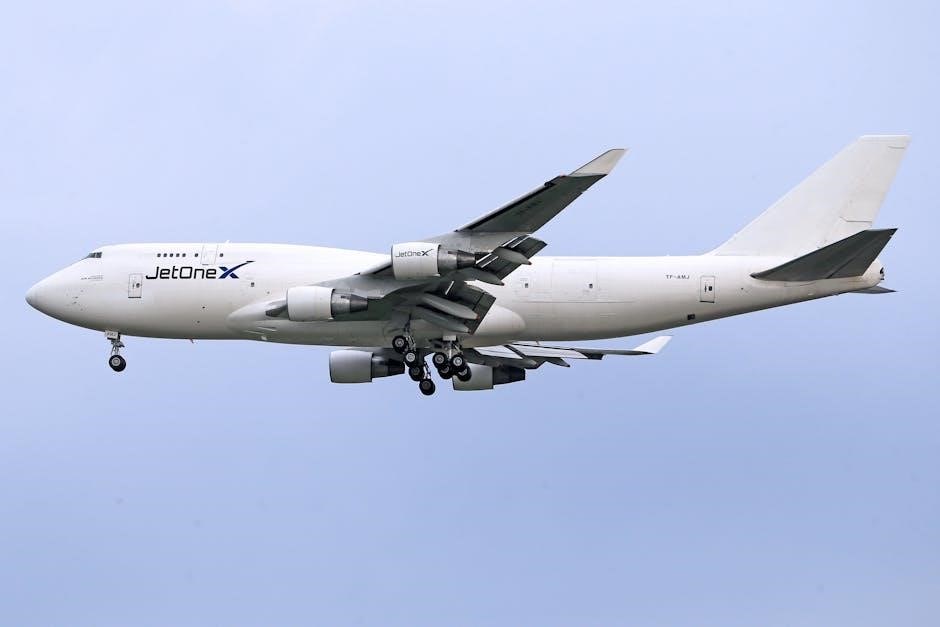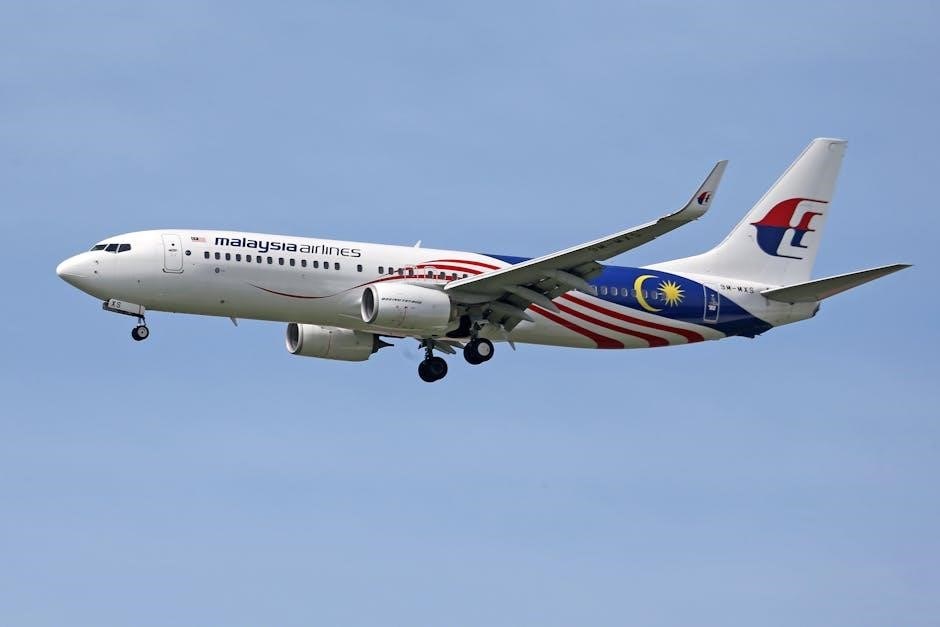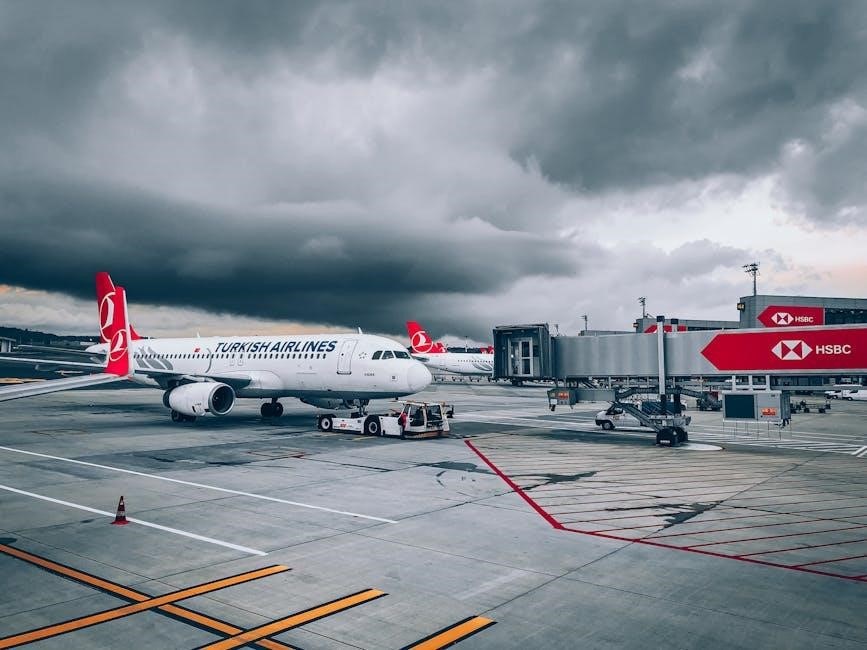A livery operation must instruct renters on safety procedures‚ emergency contacts‚ vessel handling‚ environmental practices‚ and legal compliance to ensure a secure and responsible rental experience.
- Safety procedures and emergency protocols
- Proper vessel operation and handling
- Environmental conservation practices
- Legal and regulatory requirements
A pre-rental checklist and attestation form are essential to confirm renters understand their responsibilities and safety guidelines.
Legal and Regulatory Requirements
A livery must instruct renters on obtaining necessary certifications‚ permits‚ and adhering to age restrictions and local laws to ensure compliance with regulatory standards.
- Certifications required for vessel operation
- Permits and licensing for specific activities
- Age restrictions for renters and operators
- Compliance with local and regional laws
2.1 Certifications and Permits
A livery must instruct renters on the necessity of obtaining proper certifications and permits before operating a vessel. This includes ensuring renters meet state-specific boating safety education requirements‚ particularly for out-of-state visitors. The livery should provide guidance on accepted certifications and any additional permits required for specific activities or vessel types. Renters must be informed about the Livery Pre-Rental and Pre-Ride Instruction Checklist and Attestation Form‚ which verifies their understanding of operational and safety guidelines. Compliance with these requirements ensures legal operation and minimizes liability for both the livery and the renter.
- Boating safety education certifications
- Permits for specific vessel types or activities
- Completion of pre-rental instruction checklists
2.2 Age Requirements
Livery operators must inform renters about age restrictions for operating rented vessels. In many jurisdictions‚ the minimum age to rent or operate a vessel is 18 years old. Renters under this age may require adult supervision or written consent. The livery should verify the renter’s age through a valid ID and ensure compliance with local and state regulations. Some states allow minors to operate vessels if they complete a boating safety course or are accompanied by an adult. Clear communication of these requirements is essential to avoid legal issues and ensure safe operations.
- Minimum age to rent or operate a vessel
- Requirements for minors operating vessels
- Verification of age through valid identification
2.3 Local Laws and Regulations
Livery operators must instruct renters on local laws and regulations governing vessel operations. This includes restricted areas‚ such as airports or central business districts‚ where pickups are prohibited. Renters must be informed about specific municipal codes‚ like Chicago’s Chapter 9-114‚ which outlines licensing and operational rules. Additionally‚ operators should highlight any regional restrictions‚ such as those near Navy Pier or McCormick Place. Compliance with these regulations ensures legal operation and avoids penalties. Clear communication of these rules is essential for a smooth and lawful rental experience.
- Restricted areas for vessel operation
- Compliance with municipal codes
- Adherence to regional regulations

Safety Procedures and Protocols
Livery operators must instruct renters on emergency contacts‚ life jacket use‚ and navigation rules to ensure safe vessel operation and compliance with safety standards.
- Emergency contact information
- Proper use of life jackets
- Navigation rules and protocols
3.1 Emergency Contact Information
Livery operators must instruct renters on emergency contact information‚ including 24/7 contact numbers for the livery‚ local authorities‚ and the U.S. Coast Guard.
- Provide a list of emergency contacts‚ such as the livery’s 24/7 phone number.
- Include contact details for local law enforcement and marine authorities.
- Ensure renters know how to reach the U.S. Coast Guard for assistance.
- Highlight the importance of carrying a fully charged phone or VHF radio.
- Specify the protocol for reporting incidents or accidents immediately.
This ensures renters can quickly access help in case of emergencies‚ promoting safety and compliance with regulations.
3.2 Use of Life Jackets
Livery operators must instruct renters on the mandatory use of life jackets to ensure safety on the water.
- Renters must be informed that life jackets are compulsory for all passengers.
- Demonstrate how to properly fit and wear life jackets.
- Ensure life jackets are Coast Guard-approved and suitable for the vessel type.
- Highlight the importance of keeping life jackets easily accessible.
- Emphasize that children and non-swimmers must wear life jackets at all times.
Compliance with life jacket regulations is critical for preventing accidents and ensuring a safe rental experience.
3.3 Navigation Rules
Livery operators must instruct renters on essential navigation rules to ensure safe and lawful vessel operation.
- Understanding right-of-way protocols to avoid collisions.
- Adhering to speed limits in designated areas.
- Recognizing and obeying navigational buoys and markers.
- Being aware of restricted zones and no-wake areas.
- Properly using navigation lights during low visibility conditions.
Compliance with these rules is crucial for maintaining safety on the water and avoiding legal penalties.

Operational Guidelines
Liveries must instruct renters on proper vessel handling‚ fueling procedures‚ and starting/Stopping protocols to ensure safe and efficient operation of the rental vessel.
4.1 Starting and Stopping the Vessel
Liveries must instruct renters on proper procedures for starting and stopping the vessel to ensure safety and prevent damage. This includes pre-start checks‚ ignition use‚ and throttle control.
- Ensure the vessel is in neutral gear before starting the engine.
- Use the kill switch and ensure it is properly secured to the operator.
- Gradually increase throttle to avoid sudden movements.
- Idle the engine before shutting it off to cool it down.
- Secure the vessel properly after stopping to prevent drifting.
These steps ensure safe and efficient vessel operation‚ minimizing risks and maintaining equipment integrity.
4.2 Steering and Maneuvering
Liveries must instruct renters on proper steering and maneuvering techniques to ensure safe and controlled vessel operation. This includes understanding how to handle the vessel at various speeds and in different conditions.
- Use of throttle and steering controls for smooth navigation.
- Techniques for docking‚ turning‚ and stopping safely.
- Understanding how vessel speed affects maneuverability.
- Avoiding sudden movements to maintain control.
- Being aware of surrounding watercraft and obstacles.
Proper steering and maneuvering are critical for a safe and enjoyable rental experience‚ reducing the risk of accidents and damage to the vessel or environment.
4.3 Fueling Procedures
Liveries must instruct renters on proper fueling procedures to ensure safety and environmental protection. This includes using approved containers‚ avoiding overfilling‚ and preventing spills;
- Safe handling of fuel to prevent spills and fires.
- Use of approved fuel containers and equipment.
- Proper techniques for refueling while on land or water.
- Monitoring fuel levels to avoid overfilling or running out.
- Disposing of fuel waste responsibly.
Proper fueling practices are essential for maintaining safety‚ reducing environmental impact‚ and ensuring a smooth rental experience. Renters must follow all guidelines to prevent accidents and protect the vessel and surroundings.

Environmental and Conservation Considerations
Liveries must instruct renters on minimizing noise pollution‚ protecting wildlife‚ and proper waste disposal to promote eco-friendly practices during their rental experience.
- Minimizing noise to avoid disturbing wildlife.
- Avoiding sensitive habitats and protected areas.
- Proper disposal of waste and pollutants.
5.1 Noise Pollution
Liveries must instruct renters to minimize noise pollution by operating vessels at reasonable speeds and avoiding excessive engine revving‚ especially in sensitive areas.
- Operate vessels at moderate speeds to reduce noise.
- Avoid revving engines unnecessarily‚ particularly near wildlife or residential zones.
- Maintain a safe distance from marine life to prevent disturbance.
- Be aware of and adhere to local noise regulations or quiet hours.
These practices help preserve the environment and ensure a peaceful experience for both renters and surrounding ecosystems.
5.2 Wildlife Protection
Liveries must instruct renters to protect wildlife by maintaining a safe distance from marine animals‚ avoiding feeding them‚ and not disrupting their habitats.
- Keep a safe distance from marine life to prevent disturbance.
- Never feed wildlife‚ as it can harm their health and ecosystems.
- Avoid littering or disposing of waste improperly to protect marine habitats.
- Stay within designated waterways and avoid sensitive ecological areas.
These practices help preserve biodiversity and ensure a safe‚ respectful environment for both renters and wildlife.
5.3 Proper Waste Disposal
Liveries must instruct renters on proper waste disposal to protect the environment; Renters should be advised to dispose of all trash and recyclables in designated receptacles onshore‚ not in the water.
- Use onboard waste containers for collecting trash during trips.
- Avoid disposing of any waste‚ including food scraps‚ into the water.
- Separate recyclable materials from general waste when possible.
- Ensure all trash is taken ashore and disposed of properly after the rental period.
Proper waste disposal helps maintain clean waterways and preserves marine ecosystems for future generations.
Insurance and Liability Coverage
Liveries must instruct renters on the insurance and liability coverage provided and required for the rental period. Renters should be informed about the types of insurance available‚ such as collision or liability coverage‚ and what is included in the rental agreement.
- Renters must be aware of the insurance policy details and coverage limits.
- The livery should provide proof of insurance and explain the terms clearly.
- Renters may be required to purchase additional insurance if not already covered.
- Liability coverage ensures protection in case of accidents or damages during the rental.
Understanding insurance and liability coverage is essential for a secure and stress-free rental experience;

Rental Contracts and Agreements
Liveries must instruct renters on the terms and conditions of the rental contract‚ ensuring clarity on rights‚ responsibilities‚ and liabilities. The agreement should outline payment terms‚ cancellation policies‚ and damage liability.
- Renters must review and sign the contract before taking possession of the vessel.
- The contract should include details on insurance coverage and any additional fees.
- Renters are responsible for understanding and adhering to the agreement’s terms.
- The livery must provide a copy of the signed agreement for their records.
A clear and comprehensive rental agreement protects both the livery and the renter‚ ensuring a smooth and legally binding transaction.
Emergency Preparedness and Response
Liveries must instruct renters on emergency preparedness and response protocols to ensure safety on the water. This includes providing emergency contact information‚ locations of life jackets‚ and procedures for distress situations.
- Renters should be trained on how to use life-saving equipment and communicate emergencies.
- A checklist for emergency preparedness should be reviewed before departure.
- Renters must know how to respond to incidents like mechanical failures or medical emergencies.
- Regular safety drills and updates on weather conditions are essential.

Ensuring renters are well-prepared for emergencies minimizes risks and promotes a safe experience for all parties involved.
Pre-Rental and Pre-Ride Checklists
Liveries must provide renters with a comprehensive pre-rental and pre-ride checklist to ensure safety and compliance. This includes reviewing safety procedures‚ emergency contact information‚ and proper vessel operation guidelines.
- Renters must acknowledge understanding of safety protocols and environmental practices.
- A written attestation form‚ such as the FWCDLE 313B‚ must be signed before rental.
- The checklist should cover life jacket use‚ navigation rules‚ and fueling procedures.
- Renters must confirm they have received and understood all instructions.
This process ensures renters are prepared and aware of their responsibilities‚ promoting a safe and legally compliant rental experience.

On-Water Demonstrations and Check Rides
Liveries must conduct on-water demonstrations and check rides to verify renters’ ability to safely operate the vessel. This ensures compliance with safety and regulatory standards.
- An instructor must assess the renter’s ability to handle the vessel safely.
- Demonstrations should cover operational characteristics‚ safety procedures‚ and environmental concerns.
- Renters must acknowledge they can operate the vessel responsibly after the check ride.
This step is critical for ensuring renters are prepared and capable of operating the vessel safely‚ reducing risks and ensuring compliance with livery regulations.

Renter Responsibilities and Etiquette
Renters must adhere to safety guidelines‚ respect the vessel‚ and follow environmental practices. They are responsible for understanding and complying with all instructions provided by the livery.
- Renters must follow noise pollution regulations to avoid disturbing wildlife and other water users.
- Proper waste disposal and wildlife protection are essential to maintain ecological balance.
- Renters should operate the vessel responsibly‚ avoiding reckless behavior and adhering to navigation rules.
- Respecting other watercraft and users ensures a harmonious and safe environment for everyone.
By upholding these responsibilities and etiquette‚ renters contribute to a safe‚ enjoyable‚ and environmentally conscious experience for all parties involved.

Best Practices for a Safe Rental Experience
To ensure a safe rental experience‚ renters must follow established guidelines and understand safety protocols. Livery operators should provide clear instructions on vessel operation‚ emergency procedures‚ and environmental practices.
- Renters should review and sign a pre-rental checklist acknowledging safety procedures and emergency contact information.
- Proper use of life jackets and adherence to navigation rules are critical for safe vessel operation.
- Renters must respect environmental regulations‚ including proper waste disposal and wildlife protection.
- Operators should conduct on-water demonstrations to verify renters’ ability to handle the vessel safely.
By adhering to these best practices‚ renters can enjoy a secure and responsible experience while minimizing risks and environmental impact.
Local and Regional Regulations
Livery operators must instruct renters on local and regional regulations to ensure compliance during vessel operation. These regulations vary by jurisdiction and may include specific restrictions on operating areas‚ noise levels‚ and wildlife protection zones.
- Renters must be informed about prohibited pickup zones‚ such as central business districts or airports‚ as specified by local ordinances.
- Operators should highlight regional permits or licenses required for vessel operation‚ such as those mandated by the Florida Fish and Wildlife Conservation Commission.
- Local laws may restrict vessel speed‚ operating hours‚ or access to certain waterways‚ which renters must adhere to.
Understanding and complying with these regulations is essential to avoid penalties and ensure a smooth rental experience.
Handling Emergencies and Accidents
Livery operators must instruct renters on emergency procedures and accident protocols to ensure preparedness and safety. Renters should be informed about emergency contact information‚ such as local authorities and Coast Guard details‚ and how to use communication devices on board.
- Renters must know how to respond to accidents‚ including securing the scene‚ providing first aid‚ and reporting incidents to the livery and authorities.
- Operators should emphasize the importance of returning to shore safely and avoiding reckless behavior that could worsen the situation.
- Renters should be instructed to document accidents with photos and written reports for insurance and legal purposes.
Clear emergency protocols help minimize risks and ensure a prompt‚ effective response to any incident.
Maintenance and Care of Rental Vessels
Livery operators must instruct renters on proper vessel maintenance and care to ensure longevity and safety. Renters should be advised to inspect the vessel before use‚ checking for damage or malfunctions‚ and report any issues to the livery immediately.
- Renters must be instructed to keep the vessel clean‚ free of debris‚ and store equipment securely to prevent damage.
- Proper fueling and handling of fluids should be emphasized to avoid spills and environmental harm.
- Renters should be informed about proper waste disposal and the importance of not discharging waste into waterways.
- Operators should provide guidelines for securing the vessel when not in use to prevent theft or damage.
Regular maintenance checks and post-rental inspections are crucial to uphold vessel condition and safety standards.
In conclusion‚ a livery must instruct renters on a wide range of critical topics to ensure a safe‚ legal‚ and enjoyable experience. These include safety procedures‚ emergency protocols‚ vessel operation‚ environmental conservation‚ and legal compliance. Renters must also understand their responsibilities‚ such as proper vessel maintenance and adherence to local regulations. By providing comprehensive pre-rental checklists and demonstrations‚ livery operators can help renters navigate these requirements confidently. Ultimately‚ clear communication and mutual understanding between the livery and renter are essential for a successful and responsible rental experience.
- Safety and emergency preparedness
- Environmental and legal compliance
- Proper vessel handling and maintenance
- Renter responsibilities and etiquette
These guidelines ensure a secure and enjoyable experience for all parties involved.
